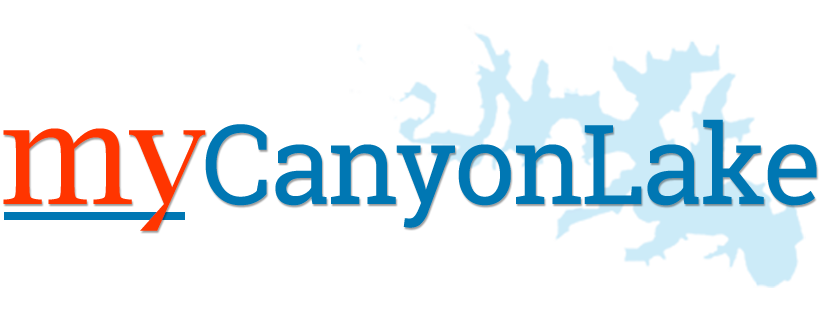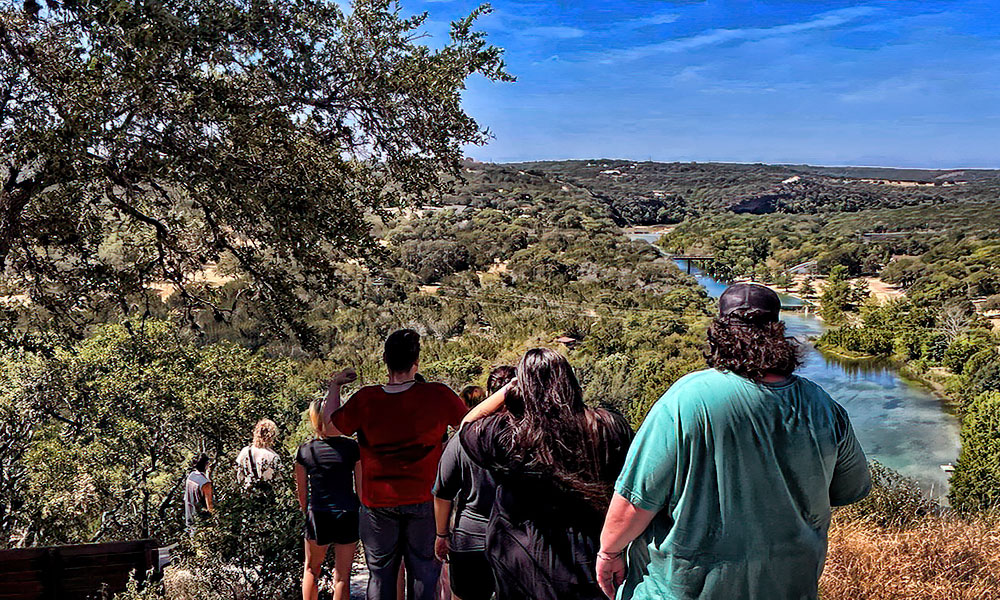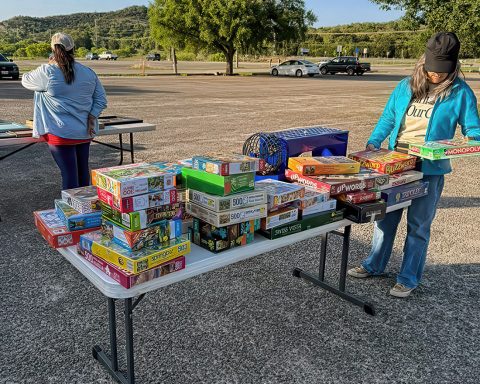Canyon Lake teenagers who are using drugs or alcohol and their family members are invited to free support meetings from 7-8 p.m. every Thursday at the Community Resource and Recreation Center of Canyon Lake (CRRC), 1917 FM 2673.
The sessions are facilitated by licensed chemical dependency counselors (LCDCs) with New Braunfels-based RecoveryWerks! The nonprofit helps teens and young adults learn how to socialize and have a good time without using drugs and alcohol.
Counselors also will be available from 5-7 p.m. Thursdays for individual counseling and recreational activities. They believe positive peer relationships are necessary for recovery.
On a walk this summer, a counselor overheard one teenager ask another, “Can you believe that we’re having this much fun sober?”
Everything’s Confidential
Everything shared at Thursday sessions between counselors and teens, in group sessions, and during guided recreational activities is considered confidential and will not be disclosed without personal consent. No proof of income is required.
“RecoveryWerks! Alternative Peer Group Program (APG) is a family-centered, professionally staffed recovery model that is proven successful in treating substance use disorders in adolescents and in helping families find healing,” said Recovery Werks! Program Director Joanne Daxon.
The medical term is ‘Substance Use Disorder’ or SUD as the medical community moves away from the term addiction to better specify the disorder. RecoveryWerks! focuses on substance use.
CRRC Surveys Identified Need
CRRC Executive Director Sean Bailey said he added RecoveryWerks! to the nonprofit’s roster of services after several surveys from the community identified substance abuse prevention-and-treatment as top issues within the Canyon Lake community.
“I had the privilege of meeting the phenomenal folks from RecoveryWerks! and we thought this was a perfect fit,” he said. “The CRRC’s mission is to help the community but we can’t do it alone, so we love to invite strong partners like RecoveryWerks! to help us, and Canyon Lake out. They have a strong program in New Braunfels and we all felt this would be a great asset to Canyon Lake.”
RecoveryWerks! this week received a grant from New Braunfels’ prestigious McKenna Foundation. This operational funding, along with a recent donation from the Canyon Lake Rotary Club, helped fund its counseling outreach at the CRRC. The amount of the grant was not publicly disclosed.
‘Seedbed of Drug and Alcohol Abuse’
The nonprofit believes peer relationships are the “seedbed of drug and alcohol use,” and stresses the importance of positive peer relationships for youth recovery.
“Young clients learn how to socialize and have fun without relying on drugs and alcohol while opening their minds to new experiences and better ways to combat anxiety, depression, loneliness, and the desire to numb their feelings,” Daxon said.
Drugs are everywhere, said Debi Dickensheets, executive director of RecoveryWerks!
“If you want to find them, you’ll find them,” she said.
While it is difficult to find reliable statistics about how many teenagers are addicted to drugs and alcohol, Dickensheets said experts believe 10% of all people will develop a substance abuse disorder.
Helping Parents Help Their Teens
RecoveryWerks! also guides parents through the complicated process of working with addicted children.
“Parents face extremely difficult decisions when trying to help their teenagers or loved ones with a substance abuse disorder and can unintentionally stand in the way of their loved one’s recovery by ‘softening’ the blow and shielding them from the consequences of their actions, for example, by bailing them out of jail,” Dickensheets said.




